One of the prevailing theories for the current obesity epidemic is the carbohydrate/insulin model of obesity. This model predicts that consuming a diet high in carbohydrates results in high insulin, resulting in body fat accumulation. Increased insulin leads to increased hunger and, subsequently, higher food intake and weight gain. This is why ketogenic (low carbohydrate, higher fat) diets are promoted for weight loss. In this comparison of plant-based and keto diets, this theory was put to the test. The results are nothing short of eye-opening.
The study design
This study, a comparison of plant-based and keto diets, is one of the best of study designs. It was a cross-over design study. See <here> to read how different study designs can lead to less than reliable results.
In this study, 20 adults (male and female) aged on average, 29 years, were put in a locked-down situation in hospital for 28 days. Their BMIs averaged 27, meaning all were overweight but not obese. None were diabetic. Half of the group was put on a ketogenic diet for two weeks while the other half of the group was put on a plant-based diet. Then the groups swapped places.
There was no junk food or rubbish given to either group. Both groups ate the healthiest types of foods for their diet style.
At the beginning of the study, blood was drawn from all. Parameters measured were glucose tolerance (diabetes risk), cholesterol, LDL cholesterol, TSH (thyroid hormone) and a lot more, plus anthropometric and other measures such as weight, fat loss, liver fat and blood pressure.
All parameters were measured again after two weeks, and again, at the end.
All meals were prepared at the hospital according to the directions given by the study designers and dieticians. Both groups had equal calories of 3800 calories a day in the three meals a day so that weight loss would not be as a result of fewer calories in one group. (Actual meal examples can be seen below).
Meals and snacks were offered to participants – as often as they wanted. Researchers measured exactly how much food participants ate. The researchers wanted to know which meals best-satisfied participants. Water was always available.
No one left the hospital or had access to any other food.
The predictions
Insulin rises post-prandially (after a meal) in response to high carbohydrates in that meal. After a couple of hours, the glucose should be mostly out of the bloodstream and insulin used up. Carbohydrates include all plant foods – fruit, vegetables, grains, legumes – as well as dairy foods. After carbohydrates are eaten, they break down into short and long chains of glucose (sugar). This travels in the bloodstream to the liver from where it is directed to various cells.
Glucose is toxic if it remains long in the bloodstream. Our pancreas releases the hormone insulin before we even finish chewing our food and this hormone helps ‘push’ the glucose in the blood through the little doors in each of our cells. We know that the more insulin in our blood, the more our bodies seem to store fat. Even injecting insulin can lead to more fat gain. It stands to reason, therefore, that high carbohydrate foods would cause fat gain. This is what the study was about. This would indicate which foods – not only control diabetes but would also control obesity.
Meals – general
The 3 meals of each day contained close to 3800 calories.
The ketogenic meals contained about 75% calories in fat, 10% in carbohydrates and around 15% protein. 82% of the ketogenic diet was animal products and there were few plant foods.
The plant-based meals contained around 75% carbohydrates, 10% fat and around 15% protein.
Each group had seven different breakfasts, lunches and dinners that were then repeated in the second week.
Keto meals and snacks:
The following are images of 3 meals including snacks for one day only. Each day meals were different for a week. To see meals for every day, get my free diet plan from the pop-up form on this page.
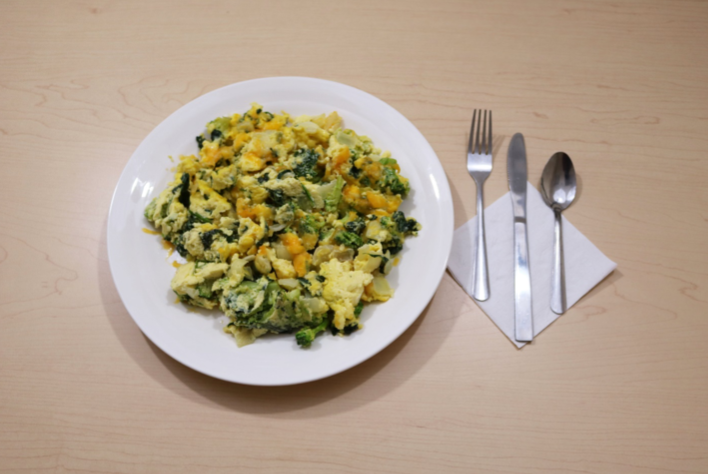
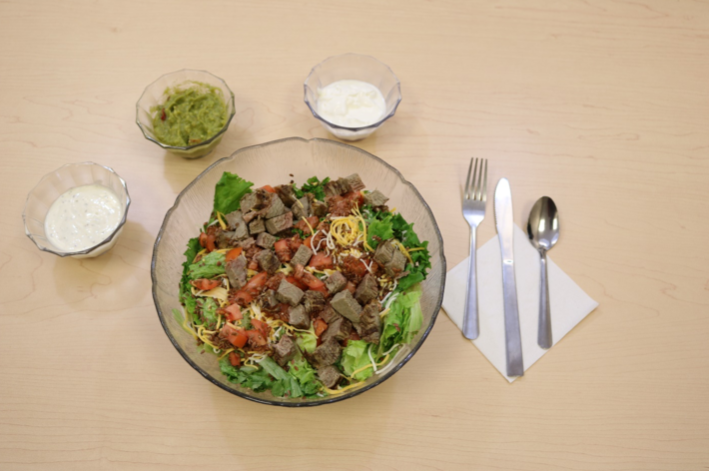
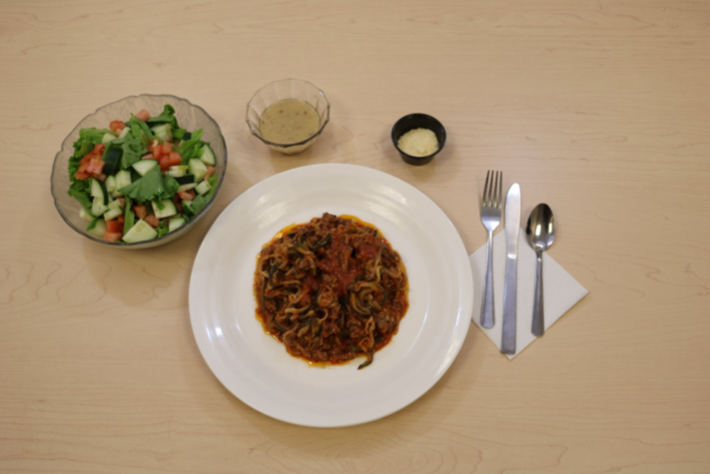
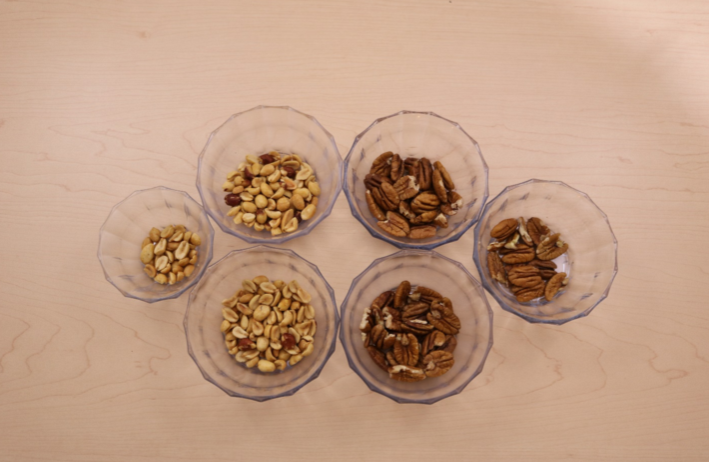
Plant-Based meals and snacks
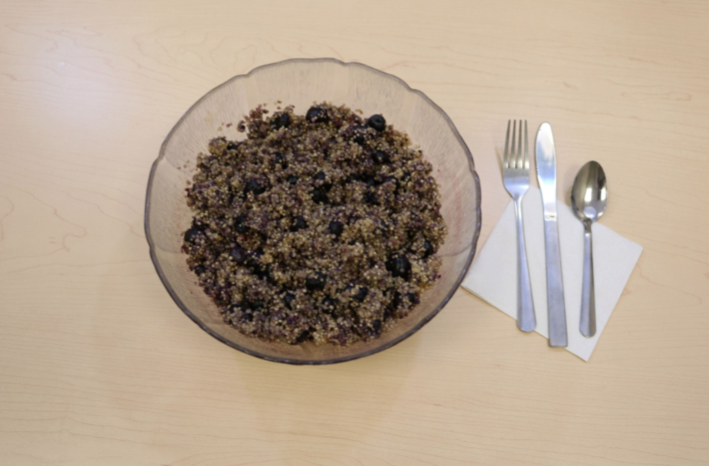
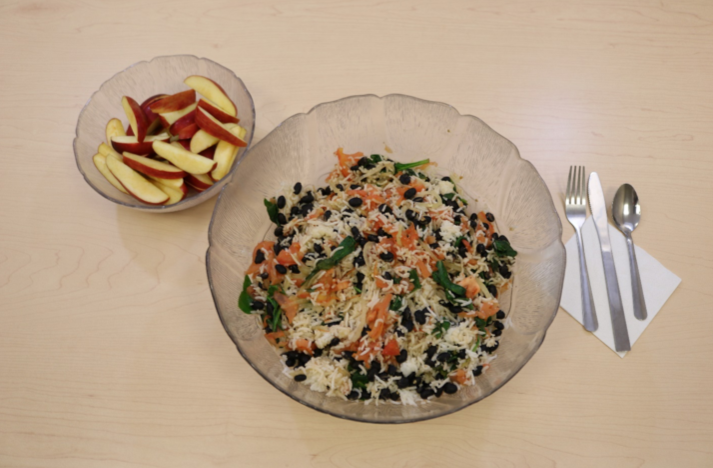

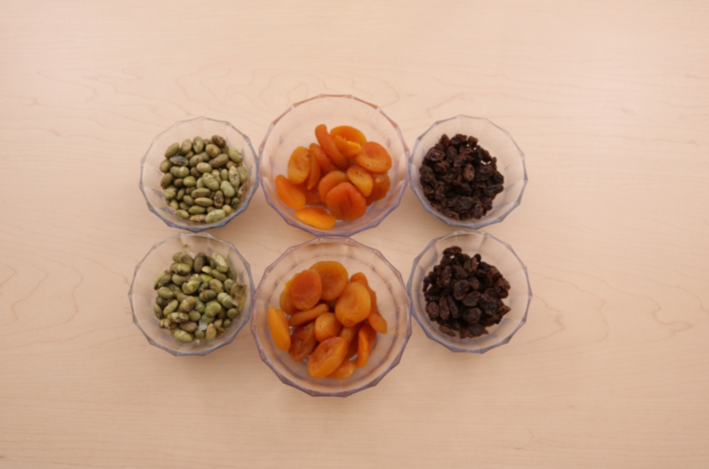
A comparison of the plant-based and keto diets follows.
The test results
| Parameter | Start/average | Keto | PB |
|---|---|---|---|
| Postprandial glucose – 2hrs | 142.6 | 108.5 | |
| Weight loss after 1 wk | 1kg | very slow | |
| Weight loss after 2 wks | 1.77kg | 1.09kg | |
| Fat loss | 16g/day | 51g/day | |
| Muscle/water loss | 1.5kg | 0.1kg | |
| Liver fat lost | 2.8% | 3.4% | |
| Blood pressure | 115/68 | 112/67 | |
| Cholesterol – total | 162.5 | 161 | 120 |
| LDL cholesterol | 87.9 | 92.4 | 64.7 |
| TSH (thyroid) | 2.26 | 2.34 | 1.86 |
| Energy intake (ad libitum) | 2700cals/day | 2000cals/day |
Conclusions
What happened in this study was unexpected. The comparison of the plant-based and keto diets showed that those eating the healthy-style ketogenic diet not only lost less fat but they also experienced poorer insulin and glucose control. They increased liver fat and dangerous cholesterol and thyroid health declined. They were also less satisfied with the food, needing to eat extra calories – 550 – 700 extra calories daily – to feel satiated.
Even though blood pressure changes and actual weight loss were similar in the short two week period, the more important parameters were increasingly worse in this short period within the ketogenic group.
This was one of the healthiest ketogenic diets I have seen. With these poor results, compared to the plant-based diet, one can only surmise how bad the results would be from the diets of normal ketogenic eaters.
Some other conclusions we can draw from this study is that carbohydrates do NOT turn to fat. In fact, the opposite is true. The more carbohydrates eaten, the less fat stored!
The idea that ketones (resulting from a ketogenic diet) limit hunger is also untrue. The ketogenic eaters ate between 550 and 700 more calories by choice – than the plant-based eaters – because they were still hungry. The high fibre plant-based diet clearly provided more satiety.
This study also turned the ideas regarding diabetes control on their head, despite the plant-based diet causing higher glucose and insulin levels right after eating. Within two hours after a meal, the insulin levels of the plant-based eaters were lower than those of the ketogenic eaters. Clearly Type 2 diabetes would be better controlled on the plant-based diet if this trend continued. The plant-based diet also reduced fat storage despite initially higher insulin levels.
Act on it!
If you would like to read the original study, it can be found and downloaded in full <here>
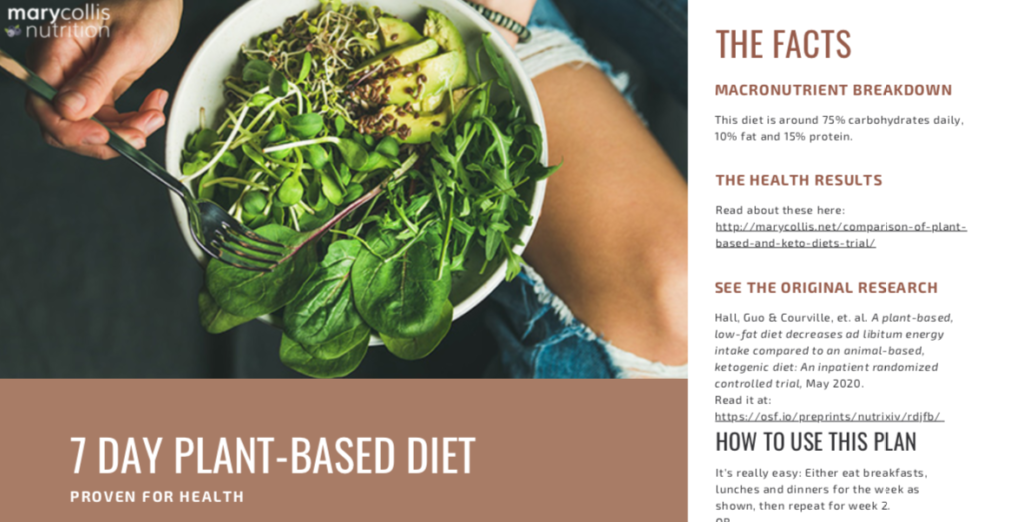
If you would like to potentially get these same results by using the exact same diet as in this study, fill out the pop-up form on this page. On it you will find seven days of meals (3 meals a day), which you repeat twice over the 2 weeks, plus snacks.
[If the form has disappeared, refresh the page and wait 10 seconds.]


0 Comments